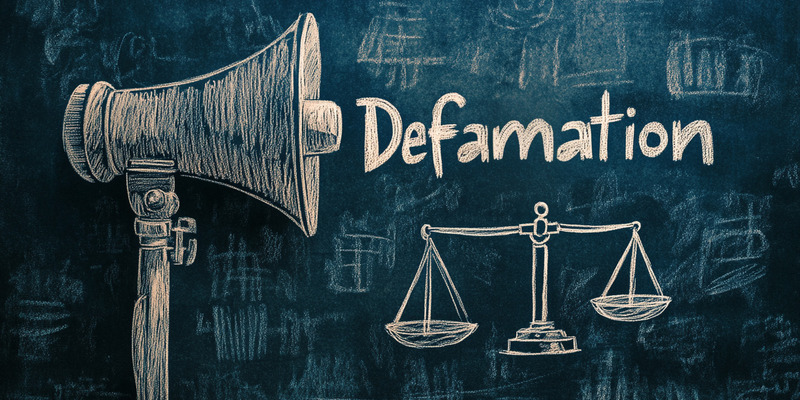
Rhetorical hyperbole is a type of speech that allows individuals to use exaggerated language as a defense to defamation claims. This type of speech is often emphatic and meant to convey strong opinions rather than factual assertions. Let's delve into what rhetorical hyperbole is, its implications, and notable Supreme Court cases that have shaped its interpretation.
What is Rhetorical Hyperbole?
Rhetorical hyperbole involves exaggerated statements that are not meant to be taken literally. This form of expression is used to emphasize a point rather than to make a factual claim. The legal protection for rhetorical hyperbole stems from the recognition that such speech is a part of robust public discourse and debate. As such, it is generally protected under the First Amendment of the U.S. Constitution.
Legal Precedents and Supreme Court Cases
The concept of rhetorical hyperbole has been clarified through various court rulings, particularly by the U.S. Supreme Court. Here are two significant cases:
Greenbelt Cooperative Publishing Assn., Inc. v. Bresler (1970)
In this case, a real estate developer, Bresler, sued a newspaper for defamation after it published articles describing his negotiation tactics as "blackmail." The Supreme Court ruled that the use of the term "blackmail" in this context was rhetorical hyperbole, not a factual accusation of a crime. The Court noted that no reasonable person would interpret the term as a literal assertion of criminal behavior.
Milkovich v. Lorain Journal Co. (1990)
While not directly about rhetorical hyperbole, this case is relevant for understanding the distinction between protected opinion and actionable defamation. The Supreme Court held that a statement must be provably false to be defamatory. Hyperbolic statements that cannot reasonably be interpreted as stating actual facts about someone are typically protected as opinions.
Implications and Limits
While rhetorical hyperbole is generally protected, there are limits to its application. Statements that can be proven false and harm someone's reputation might still be considered defamatory. The context in which the statements are made plays a crucial role in determining whether they are protected speech or actionable defamation.
Factors Courts Consider
- Context: The broader context of the statement, including the medium (e.g., newspaper, social media, private conversation).
- Audience Perception: How a reasonable person would interpret the statement.
- Factual Basis: Whether the statement implies an assertion of fact that can be proven false.
Rhetorical hyperbole plays a significant role in free speech, allowing individuals to use exaggerated language to express strong opinions. Supreme Court rulings, such as in Greenbelt v. Bresler, have reinforced the protection of such speech under the First Amendment. However, understanding the nuances and limits of rhetorical hyperbole is crucial to navigating potential legal challenges in defamation cases.
All information provided on Silblawfirm.com (hereinafter "website") is provided for informational purposes only, and is not intended to be used for legal advice. Users of this website should not take any actions or refrain from taking any actions based upon content or information on this website. Users of this site should contact a licensed Texas attorney for a full and complete review of their legal issues.
